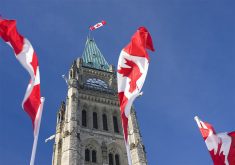Planning for death may not be the most uplifting activity, but it is important, especially for farmers who own assets such as land with extremely high value.
In estate planning, it is important to consider the following factors:
- If you do not have a will, provincial law determines how your assets are distributed. A will allows assets to be distributed according to your wishes, indicates your preferred custody of your minor children and avoids court approval for asset distribution.
- Probate fees can vary by province. In Alberta, fees top out at $400 on estates that are greater than $250,000. In Saskatchewan, fees are $7 for every $1,000 in the estate. In Manitoba fees are $70 for the first $10,000 in the estate and then $7 for each additional $1,000. Proper estate planning can help reduce these fees.
- When a person dies, they are deemed to have disposed of all capital property such as land or shares in a corporation immediately before death, and must pay capital gains tax on accrued gains. Some farm assets may qualify for a capital gain exemption or transfer to other family members that could reduce or eliminate the tax.
Read Also

Growth plates are instrumental in shaping a horse’s life
Young horse training plans and workloads must match their skeletal development. Failing to plan around growth plates can create lifelong physical problems.
Here are strategies that might help you plan your estate and succession:
- Consider an estate freeze using a family trust. This can help facilitate business succession planning, split income between family members, reduce capital gains tax on death, reduce probate fees and allow future business growth to be attributed to children or other dependants.
- Consider donations to create a tax credit that can offset tax payable. Gifts of securities to a charitable organization can generate a tax credit with no capital gain.
- Life insurance policies can ensure beneficiaries receive tax-free proceeds. This can provide a liquid asset to pay capital gains tax in your estate, allow for replacement income for dependants, and can serve as emergency or children’s education funds.
- Consider appointing financial and medical powers of attorney on your behalf should you become permanently incapacitated. If you do not do this, a provincial public trustee will take control or be involved in your financial matters.
- If you are a Canadian but own property in the United States, you should consider taking steps to insulate yourself from U.S. estate taxes. Structuring U.S. real estate and assets to help reduce or eliminate the potential liability from estate tax can lead to benefits of up to 45 percent of the value of the property.
Your business adviser can help devise an estate plan as a component of your financial planning strategy.
Colin Miller is a chartered accountant and senior manager in KPMG’s tax practice in Lethbridge. He can be reached at 403-380–5707 or by e-mail at colinmiller@kpmg.ca. Ryan Stevenson also contributed to this article














